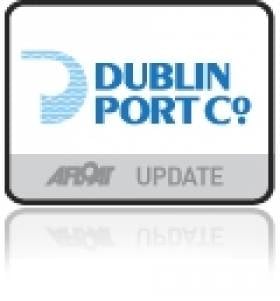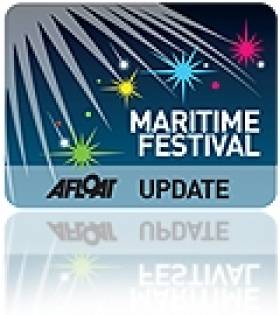Displaying items by tag: Dublin City
The need to ensure that Dublin Port and Dublin City are integrated and that the Port "turns its face" to the City, by removing physical barriers to integration and encouraging more people to visit the Port or view the activities taking place in the Port.
Widespread acceptance that Dublin Port is a key part of national strategic infrastructure and plays a key role in the life of the City and the greater Dublin area.
The importance of facilitating international trade in Ireland.
Unanimous agreement that everything possible should be done to encourage and facilitate the increased presence of Cruise Ships in Dublin Port.
General agreement that DPC faces significant challenges in operating and growing the Port in light of the location of the Port alongside sensitive environmental zones.
A common view that DPC should fully exhaust all viable alternatives to meet the operating requirements of the Port before engaging in additional reclamation works.
Widespread recognition that the creation of new port facilities at Bremore or elsewhere was not likely in the medium term given the financial challenges facing such a project in light of current national capacity, the scale of the engineering project involved and current funding.
The process sought views from a wide circle of stakeholders whose views on the operations and future of the port are important. Community briefings attracted over 100 people from Clontarf, East Wall and Ringsend. A conference was attended by 140 key stakeholders, while additional briefings were held with 12 organisations and groups.
Commenting, Mr. Eamonn O'Reilly said: "The objective of growing Dublin Port to allow it to handle 60m tonnes by 2040 is generally regarded as a reasonable basis for long term planning of the port. We are delighted with the response to our consultation process to date and we will make every effort to respond to all inputs we have received.
The Masterplan will help drive our national competitiveness by planning responsibly for an efficient and effective infrastructure to underpin the trading needs of our economy into the future. We are very conscious of the challenge of doing this, while integrating well with the city of Dublin and its citizens and expanding in a responsible and environmentally friendly manner."
Arising from the Consultation Process and the responses to the Issues Paper, there are a number of additional reports and studies that will be considered in the context of finalising the production of the Masterplan and a number of further meetings will be arranged with specific stakeholders.
Summer Festival in the Heart of Dublin’s ‘Docklands’
The Docklands Summer Festival takes place this weekend in Dublin's 'Docklands' and it is to host the Waterways Ireland Inter-County Sailing Championship, writes Jehan Ashmore.
Other events taking place on the River Liffey and throughout the docklands range from a Dragon Boat display in the Grand Canal Dock (outer basin) and a Boat Show (inner basin) see map. In addition the Waterways Ireland Visitor Centre will be open, noting all these activities and venues are to take place between 10am-6pm on Saturday.
On the following Sunday the Waterways Ireland Inter-County Sailing Championship Races are scheduled between 10am-4pm in the Grand Canal Dock's outer basin. City Canal Cruises will operate each day as well as an International Food Market, held in the Grand Canal Square, opposite the Grand Canal Theatre.
The pristinely kept M.V. Cill Airne, now a floating restaurant and bar will be open at her berth alongside North Wall Quay, close to the striking Samuel Beckett Bridge and The Convention Centre.
The historic veteran vessel built in Dublin at the Liffey Shipyard in the early 1960's was launched as a passenger tender to serve trans-Atlantic liners that called to Cobh. During her tender-duties she brought the rich and famous ashore to include Laurel & Hardy and US President Eisenhower.
The festival is sponsored by Waterways Ireland and the Docklands Business Forum. To see the full festival programme and a map of the docklands click HERE and www.ddda.ie
- Waterways Ireland
- Cobh
- DDDA
- Dublin Bay News
- Port of Dublin
- River Liffey
- Grand Canal Dock
- Docklands Summer Festival
- Dublin Docklands Development Authority
- Samuel Beckett Bridge
- The Convention Centre
- North Wall Quay
- City Canal Cruises
- Grand Canal Theatre
- M.V.Cill Airne
- Passenger Tender
- TransAtlantic Liners
- Laurel & Hardy
- President Eisenhower
- US President Eisenhower
- Dublin City
- Docklands Business Forum
- Dragon Boat Display
- Dragon's
- Dragon sailing boats
- Dragon craft

























































